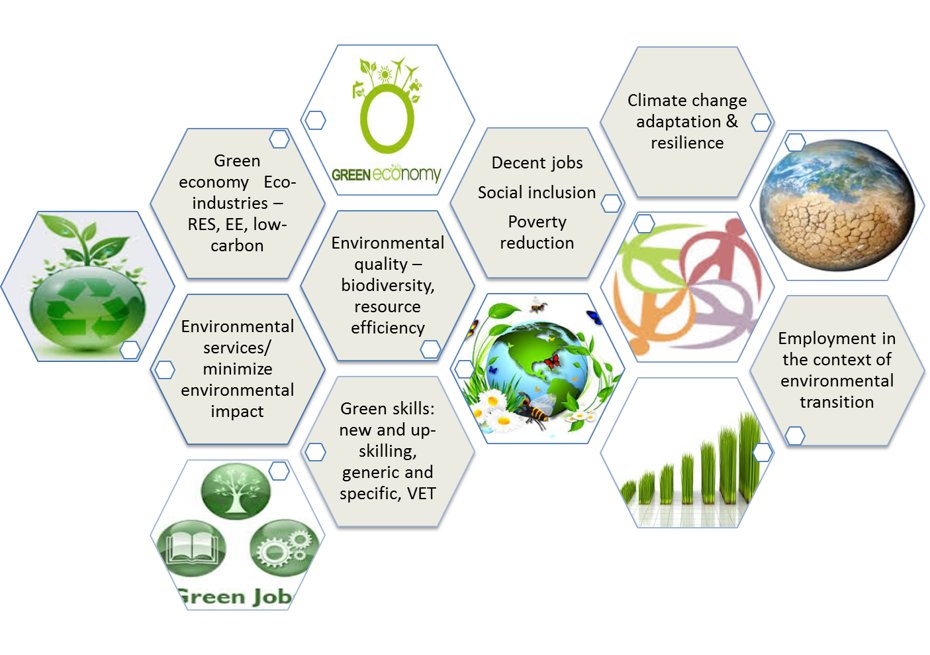- Client: French Development Agency (AFD)
- Implementation period: January, 2014 - December, 2015 (Completed)
- Geographic coverage: Global
- Theme: Environment
- Topic: Environmental Economics and Policies
- Experts: Katarina Svatikova, Jessica Yearwood Travezán, Koen Rademaekers
How to facilitate the transition to a sustainable economy in developing countries by promoting green jobs & skills ?
The study aimed to provide a knowledge base regarding the role of green jobs and skills in the transition to a sustainable economy in developing countries and provide recommendations for their integration in policies and programmes.
The key findings and recommendations of the study can be summarised as follows:
- The concepts of green jobs and skills are still emerging and a number of knowledge gaps remain. A framework to measure and monitor green jobs and assess the (employment) impacts of the transition to the green economy is currently lacking.
- There are several initiatives dealing with green growth and green economy which support green jobs and skills. Most development banks and cooperation agencies aim for inclusive green growth (or green economy) and poverty reduction.
- In order to promote green jobs from an international organisation perspective, it is important to frame green jobs and skills within the overall mission and priorities of the institution. Such institutions must be transparent regarding the measures and instruments offered and how they can be used to support green jobs. Such institutions can also provide guidance on how to assess the size and scope of green jobs in an economy/sector, suggest enabling factors for green jobs and skills and support knowledge sharing.
- From a national perspective, in order to incorporate green jobs in the national agendas, countries should: include green growth in the country vision, develop scoping studies to understand which sectors will be most affected and will need the most support, align current policies with the findings, develop/implement green jobs initiatives taking into account the country context, and set up a monitoring plan that includes green jobs.
- From an operational perspective, projects can take different approaches – such as top-down, bottom-up, mainstreaming and indirect approaches – towards supporting green jobs and skills. Because no two projects are exactly alike, each project should work through the different stages in a way that suits its specific circumstances while ensuring that the process is collaborative and consultative.
